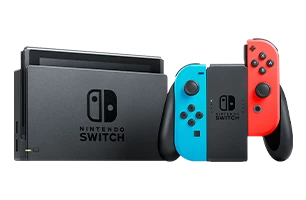卸売スマートフォン業界の障害を乗り越える: 成功への戦略
The wholesale smartphone industry is full of opportunities, but it also presents a unique set of challenges. From fluctuating demand to fierce competition, businesses in this sector must be strategic to thrive. In this article, we ll explore some of the most common obstacles wholesalers face and how to overcome them with effective solutions and forward-thinking strategies.
1. Managing Supply Chain Disruptions
One of the biggest challenges in the wholesale smartphone industry is the unpredictability of supply chains. Disruptions—due to manufacturing delays, shipping issues, or global events—can have a significant impact on your business s ability to fulfill orders.
Solutions:
• Diversified Suppliers: Establish relationships with multiple manufacturers and suppliers to reduce dependency on any single source.
• Inventory Management: Implement real-time inventory tracking systems to monitor stock levels and predict future demand.
• Build Buffer Stock: Maintain a buffer stock of popular devices to manage fluctuations in supply and demand.
2. Navigating Price Fluctuations
Smartphone prices can fluctuate based on multiple factors, including currency exchange rates, global production costs, and shifts in consumer demand. Price instability can complicate profit forecasting and affect your pricing strategies.
Solutions:
• Flexible Pricing Models: Offer tiered pricing based on order quantities or long-term contracts to provide stability in pricing.
• Market Analysis: Continuously monitor the market and adjust your pricing strategies according to emerging trends.
• Negotiate Long-Term Deals: Build partnerships with suppliers to lock in prices or secure better rates for bulk purchases.
3. Staying Competitive Amidst Rising Competition
With an increasing number of businesses entering the wholesale smartphone space, staying competitive requires more than just offering low prices. Differentiating your business from competitors is key to securing repeat clients and attracting new buyers.
Solutions:
• Focus on Niche Markets: Specialize in certain brands, models, or types of devices (e.g., gaming smartphones or eco-friendly phones) to carve out a unique market position.
• Customer Service Excellence: Offering personalized services, fast delivery, and exceptional support can set you apart from the competition.
• Diversify Your Offerings: Expand your product range to include accessories, repair services, or other related items that complement smartphone sales.

4. Handling Payment Delays and Financial Risk
Late payments or financial instability among clients can significantly affect cash flow, which is a critical concern for wholesalers who need to manage large inventories and cover operational costs.
Solutions:
• Credit Checks: Perform thorough credit checks before extending credit to clients.
• Payment Terms: Establish clear payment terms and consider requiring deposits or advance payments to minimize financial risk.
• Automated Payment Systems: Implement automated invoicing and payment reminders to speed up the payment process.
5. Dealing with Regulatory and Legal Challenges
The wholesale smartphone industry operates within a highly regulated framework, particularly regarding import/export laws, taxes, and product certifications. These regulations can be complex and differ across regions, creating potential hurdles for international wholesalers.
Solutions:
• Stay Informed on Legal Changes: Keep up with local and international regulations, including trade policies, tariffs, and certification requirements for different markets.
• Work with Legal Experts: Consult with legal advisors who specialize in international trade and technology to ensure compliance with relevant laws.
• Diversified Shipping Routes: In case of legal changes in one country, having access to alternative markets and shipping routes can reduce the risk of disruptions.
6. Maintaining Product Quality Control
Maintaining high standards of product quality is vital for retaining customers and ensuring the long-term success of your wholesale business. However, sourcing large volumes of devices presents a challenge in maintaining consistency.
Solutions:
• Regular Inspections: Implement a robust quality control process with regular inspections of devices before they are shipped to customers.
• Reliable Suppliers: Build relationships with trusted suppliers who prioritize quality assurance.
• Return and Warranty Policies: Offer clear return and warranty policies to give clients confidence in the products they purchase.
7. Adapting to Market Trends
The smartphone industry evolves quickly, with new models, technologies, and features constantly being introduced. Wholesalers need to stay on top of trends to anticipate consumer demand and ensure their product offerings remain relevant.
Solutions:
• Trend Analysis Tools: Use market analysis tools and industry reports to stay informed on emerging trends such as foldable smartphones, 5G technology, or eco-friendly devices.
• Engage with Industry Events: Attend trade shows, conferences, and product launches to network with suppliers and get firsthand insight into upcoming trends.
• Client Feedback: Regularly engage with clients to understand what features and products are most in demand in their markets.

Conclusion: Building Resilience in a Challenging Market
B2B Samsung 製品の卸売、工場でロック解除された Samsung スマートフォンの卸売、新しい Samsung デバイスの一括販売











